about
the storyboard…story
Ben Oliver and Justin Plant first met in 2012 when Ben was hired as a freelance videographer for a company in Chapel Hill where Justin was the in-house videographer. 3 months and 30+ videos later, they stepped out of the 10×10 office they were sharing, breathed in some badly needed fresh air, and went their separate ways.
But not for long… After hiring each other back and forth for their own projects for a few years, they finally decided to join forces and launched Storyboard Media in January of 2014.
For over a decade now, we’ve made our living in video production. We built our business by asking the best questions, from which we pitched the best creative concepts. That, and Ben is a huge flirt. HUGE.
Somewhere along the way we realized that the more we knew our clients and the better we understood how video worked within their overall marketing efforts, the creative we were pitching got better. And our videos got more results.
What gets us the job these days is our process for developing comprehensive video strategies, audience-driven creative concepts, and finding the way for our clients’ videos to have the most relevance to their audience, rather than just ‘video production.’ That is our living now. And Ben is still a flirt. STILL.
We invite you to be a part of our story, and to start doing video marketing the Storyboard way.
how we’re different
STRATEGY FIRST
Every video starts with clear goals, defined audiences, and a roadmap for making video content that converts.
ENGAGING CREATIVE
Our concepts grab attention, reflect your brand, and keep your audience engaged. It’s creativity with purpose.
OUTCOMES FOCUSED
Views are vanity. Results are better. If it doesn’t support your goals, we don’t make it. Every video earns its place.
KEY PARTNERSHIPS
A lean team supported by trusted specialists. We build the right crew for every project from our proven network.
leadership?
Ben Oliver
CEO & Chief Strategist
Ben’s career in the video industry began with a lie.
At the time he was consulting small, home-based startups when one of his clients asked if he knew how to edit video. Desperate for more billable hours, he lied and said, “Yes.” Three editing projects later, he knew he had stumbled upon his calling.
These days, while Ben’s focus is more on strategic planning and running the business, Justin still gets a certain nostalgic look in his eye when he says, “Ben’s the best editor I know.”
Ben currently resides in Downtown Durham with no wife, no kids, and no pets. But he’s still a flirt.
Justin Plant
Principal & Co-Founder
Many people know Justin as a producer at Storyboard Media. (What does a producer actually do, anyhow?)
Others recognize him as an expert outdoorsman – hunting, camping, and generally exploring the wilderness. And yet others are aware of his status as a world-class athlete – competing in endurance events, mountain biking, and dunking on you in basketball.
Every fall, Justin grows a beard on which John Lennon of The Beatles has commented, “simply remarkable.”
He lives in Durham with his wife, his two sons, and two dogs.
our secret ingredient
We learned a long time ago that to make better video we had to surround ourselves with people more creatively and technically talented than us.
We are proud to work with a network of immensely talented freelancers, cast, and crew around the world.
what we believe
THE VIDEO REFORMATION
Video is a practice, not a deliverable. It is NOT merely the result of writing, shooting, and editing footage into a compressed digital file. Video is a continuous cycle of strategizing, planning, creating, producing, distributing, promoting, analyzing, and applying what you’ve learned to the next iteration.
And when it comes to business, video is no longer a novelty, but a necessity. And because it will be an integral part of our business, we must aim for our video to be effective. Effective video helps us achieve our desired future state. Effective video helps our prospects and customers achieve their desired future states. Effective video allows us to learn about our viewers as much as they learn about us.
So in order to practice effective video for business, we will follow the rules below as if our jobs depend on it.
Because, ultimately, they do.
PURPOSE
The purpose of each video may be informed by company goals, business unit goals, or personal goals, but the purpose will always be clearly stated before any video is produced.
INTEGRATED
Furthermore, our video will not function outside of our other strategic endeavors, and it will not live in isolation from our other content.
It will complement and amplify our company culture, our brand voice, and our existing/future content, including our other videos.
SPECIFIC
Our video will have a clearly defined objective, audience, and call to action.
Because if we try to do everything, we will do nothing; if we try to speak to everyone, we speak to no one; if we ask our viewer to do everything, they will do nothing.
ACTION
A clear line can be drawn from our video’s purpose to this specific action.
The opportunity to capture our viewers’ attention and drive action is the unfair advantage of video, and we will seize that opportunity.
MEASURABLE
The better we measure, the more we can learn.
We will resist the urge to favor vanity metrics like view count and play rate in exchange for results and company wins.
ATTAINABLE
This means establishing attainable objectives and setting realistic expectations.
When we establish our budgets, timelines, and metrics of success, we will not see these constraints as obstacles, but as opportunities to make better decisions and better video.
INVESTMENT
We will treat video the same.
We will set out to create video that has a positive, measurable return for our business.
As the most engaging and measurable content out there, video can and should make the company money.



